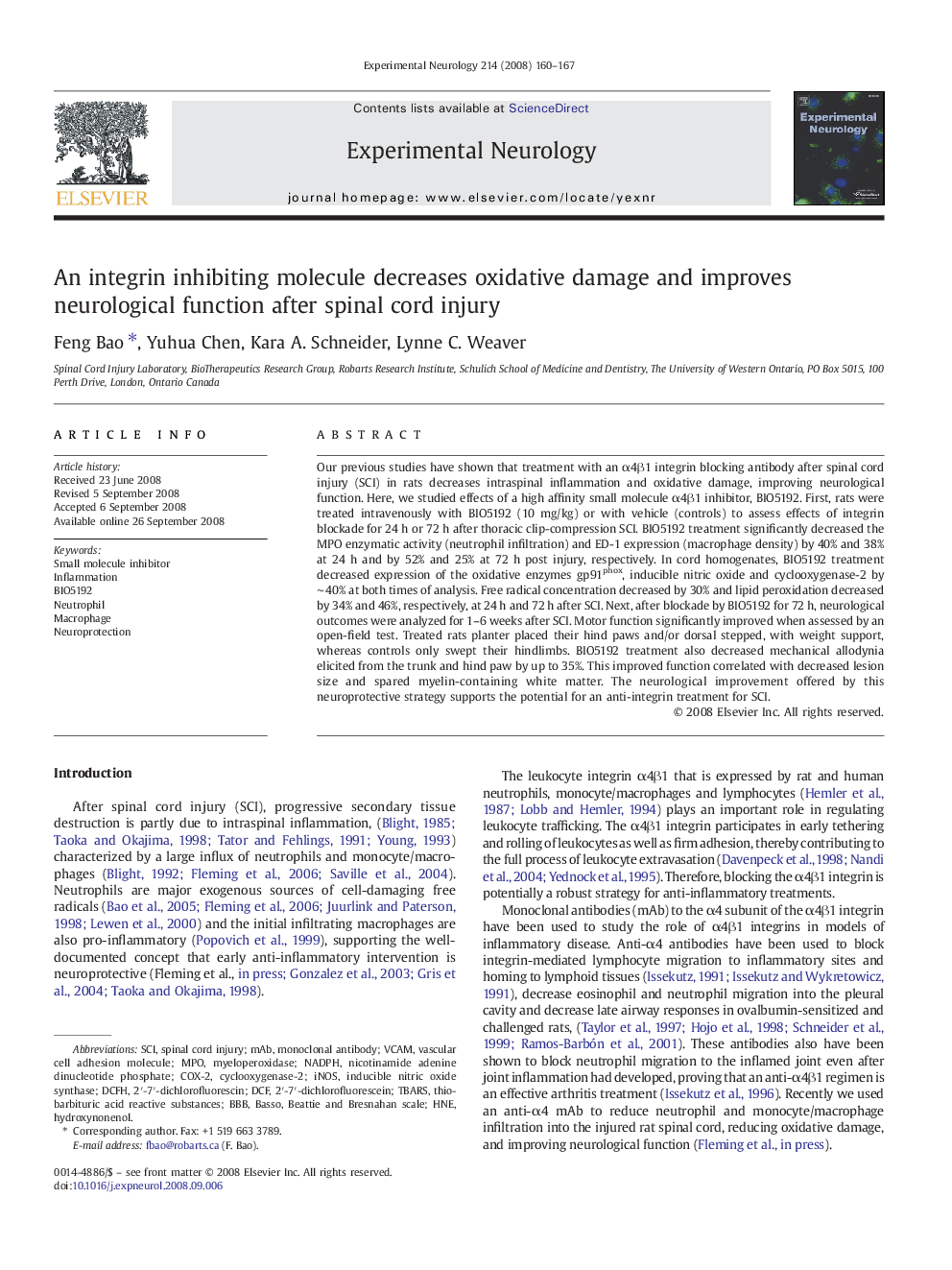| Article ID | Journal | Published Year | Pages | File Type |
|---|---|---|---|---|
| 3056515 | Experimental Neurology | 2008 | 8 Pages |
Our previous studies have shown that treatment with an α4β1 integrin blocking antibody after spinal cord injury (SCI) in rats decreases intraspinal inflammation and oxidative damage, improving neurological function. Here, we studied effects of a high affinity small molecule α4β1 inhibitor, BIO5192. First, rats were treated intravenously with BIO5192 (10 mg/kg) or with vehicle (controls) to assess effects of integrin blockade for 24 h or 72 h after thoracic clip-compression SCI. BIO5192 treatment significantly decreased the MPO enzymatic activity (neutrophil infiltration) and ED-1 expression (macrophage density) by 40% and 38% at 24 h and by 52% and 25% at 72 h post injury, respectively. In cord homogenates, BIO5192 treatment decreased expression of the oxidative enzymes gp91phox, inducible nitric oxide and cyclooxygenase-2 by ∼ 40% at both times of analysis. Free radical concentration decreased by 30% and lipid peroxidation decreased by 34% and 46%, respectively, at 24 h and 72 h after SCI. Next, after blockade by BIO5192 for 72 h, neurological outcomes were analyzed for 1–6 weeks after SCI. Motor function significantly improved when assessed by an open-field test. Treated rats planter placed their hind paws and/or dorsal stepped, with weight support, whereas controls only swept their hindlimbs. BIO5192 treatment also decreased mechanical allodynia elicited from the trunk and hind paw by up to 35%. This improved function correlated with decreased lesion size and spared myelin-containing white matter. The neurological improvement offered by this neuroprotective strategy supports the potential for an anti-integrin treatment for SCI.
